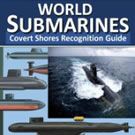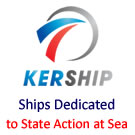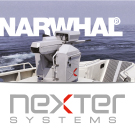 “This was an extraordinary opportunity to operate Standing NATO Forces with national forces of France to achieve the cohesion of forces required should our groups ever be called upon to operate together in the future,” said Rear Adm. Brad Williamson, Commander, SNMG2. Picture: NATO |
|||
Task groups
such as TF 473 have the capability, mobility, and supplies to rapidly
shift to a crisis area if needed. During the past week’s exercises,
ships’ watch teams worked together, sharing operational best practices
in order to forge a unified force, demonstrating the ability of NATO maritime
forces to seamlessly integrate follow-on forces when required to do so. “This was an extraordinary opportunity to operate Standing NATO Forces with national forces of France to achieve the cohesion of forces required should our groups ever be called upon to operate together in the future,” said Rear Adm. Brad Williamson, Commander, SNMG2. As NATO moves forward with the implementation of the Readiness Action Plan, exercises and training between Standing Naval Forces and national forces will become the norm in order to enable the effective transition from peacetime operations to robust and credible crisis response at and from the sea. “This is a great opportunity for our forces to trade operational knowledge with each other,” said Lt. Colin Ryan, SNMG2 flagship USS Vicksburg’s (CG 69) anti-submarine warfare officer. “We often participate in large exercises to improve our interoperability in severe situations, but just as important is to understand how our navies work on a day-to-day basis in order to operate together when it really counts.” Carrier and amphibious strike groups such as TF 473 conduct vital strategic tasks for their nations. This exercise demonstrated that NATO is able to adapt its Standing Naval Forces’ schedules to those of national task groups in order to enhance training and assurance for all participants without impacting national naval programs. “One of the most important things that we are able to take away from these exercises is a better understanding of what makes each of our Allies improve the capabilities of this force,” said Lt. Taner Erdem (TUR N), SNMG2 staff planning officer. “Each Navy has experiences and strengths that they bring to the table and learning about them and how they fit our combined mission is really a great experience.” SNMG2 is currently comprised of flagship USS Vicksburg (CG 69), Turkish ship TCG Turgutreis (F 241), Canadian ship HMCS Fredericton (FFH 337), and German oiler FGS Spessart (A 1442) and is deployed in the Mediterranean serving as NATO’s maritime force dedicated to maintaining peace and stability in the region. |
|||
NATO Maritime Group Exercises With French Navy’s Charles De Gaulle Carrier Strike Group
- Posted On











